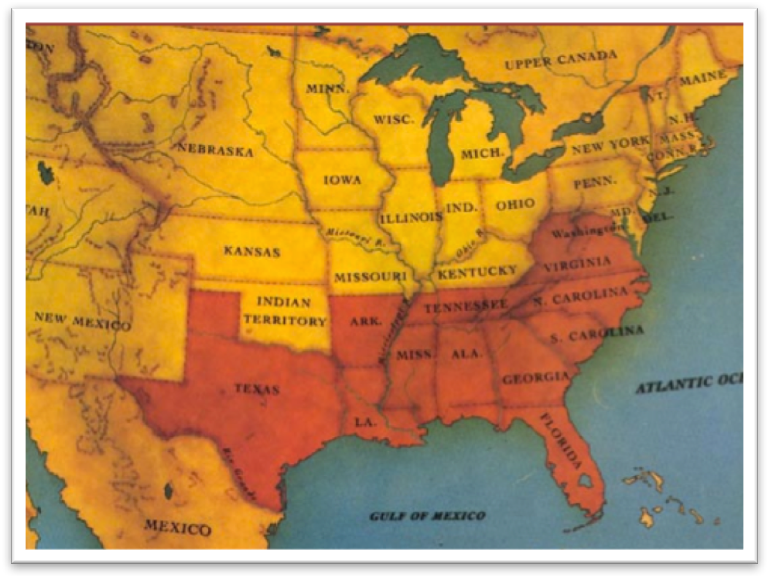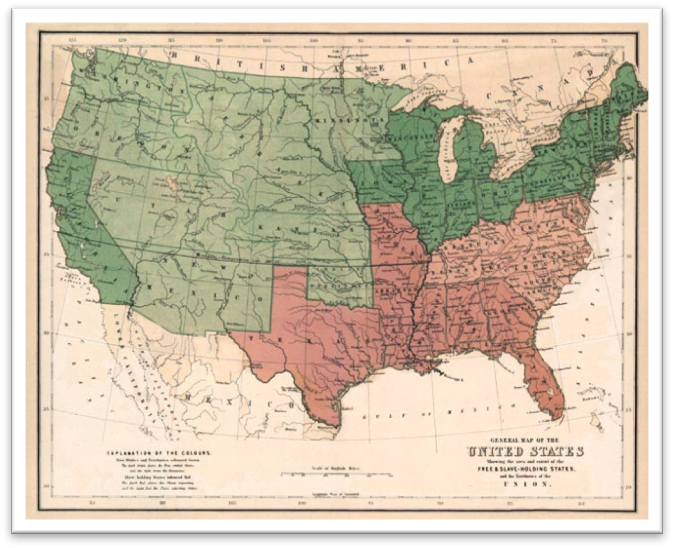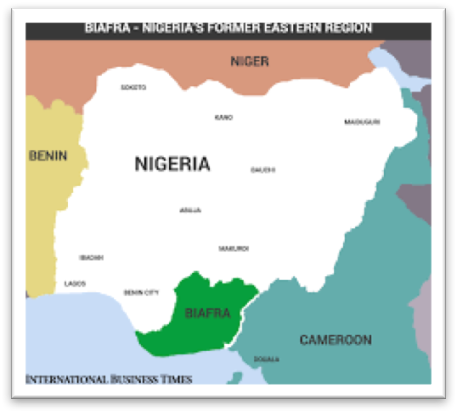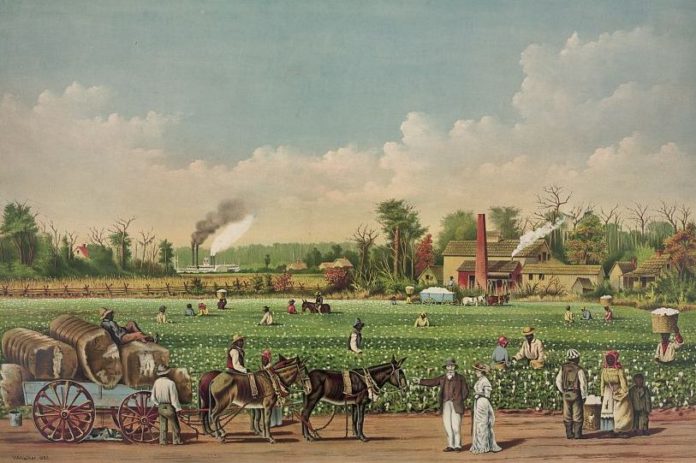by Christian Thorne
This paper was written for “The South and the South,” a conference hosted by Vanderbilt University in May 2016. Its opening questions were generated by Hortense Spillers and other members of the boundary 2 collective.
This essay was peer-reviewed by the editorial board of b2o: an online journal.
What comes to mind when a writer says that he means to comment upon “the South”? Anyone sitting in North America is likely to hear that term, if not further specified, as referring to the southern United States, what we might for now call “Alabama etcetera,” though this is hardly the phrase’s only possible designatum. The other region now routinely denominated “the South”—the other region, I mean, that routinely earns that otherwise ungrammatical capital S—isn’t actually a region at all, but a name for what used to be called “the Third World” or “the developing countries” or “the colonies”: the Global South. The American South, the Global South—as soon as one sees those two terms in the same paragraph, questions start humming. Why does the former Third World bear the same name as Georgia and the Carolinas? Do these have anything to do with one another, conceptually or concretely? Do our perceptions of one bleed into our perceptions of the other? In what sense are they all southern? What are we attributing to a region when we call it southern? Is there such a thing as southness?
With these questions in front of us, I’d like to state a few propositions forthrightly—propositions, in the first instance, about the US South, which might or might not open up to include the global South, too. There are two propositions that I suspect I can get a person to agree with directly, without coaxing, and then a third that will in all likelihood require further elaboration and reflection. I’m going to share a few observations about “the South,” but with the proviso that I mean the phrase and not the place. What I’m wondering is what it means to call some expanse of territory “the South.”
What I need us to see first is that the word “South” is, in the US context and probably most others besides, entirely optional. You might imagine yourself reading these words in Tennessee somewhere, west of the Appalachians. We often refer to that patch of the planet as “the South,” but we could and do call it other things. A person might for instance, feel a certain attachment to the region marked out in burnt orange here:

—or to the dusty pink region here:
Such a person would have a few different choices about what to call either of those contiguities. One of them he could call the slave states; the other he could call the Confederacy or the former Confederacy; or Dixie or Dixieland or maybe the Southeast.
So again, the word South is optional. Second example, in one sentence:
Have you ever noticed that Biafra is only ever referred to as eastern Nigeria?
Third example. Anyone interested in the American South would still do well to read that group of writers variously referred to as the Vanderbilt Agrarians and the Nashville Agrarians and the Tennessee Agrarians and the Southern Agrarians.[1] A small admission: Only Edmund Wilson seems to have called them the Tennessee Agrarians, though that is what he called them.[2] Vanderbilt, Nashville, Tennessee, Southern. The nested redundancy of that list makes especially plain, I think, the elective quality of the word “southern.” Other designations are always available. Nor are these words plain synonyms—not at all. The word “Southern” is doing something slightly different in this formulation than would the words “Vanderbilt” or “Nashville”—it has different effects—and it falls to us to say what these are.
The point that jumps out, of course, is that the South stands here at the end of a spectrum of widening scope, from the pinpoint of Vanderbilt to the eleven-state sectional vastness of the South. But let’s whittle the list back to Nashville vs. Southern, since these are the two main rivals when it comes to placing the Agrarians. We’ll want to register the localizing specificity of the one vs. the relative under-determination of the other. It becomes important here that we not overlook an important point, which is that option #4 does not merely name the widest among the four spaces—from campus to city to state to region. It’s that the word “Southern” doesn’t actually name a place in the same way that these others do.
All I mean is that the South is a non-specific term—the only word on that list that is not a proper name. I would readily grant that even proper names aren’t as specifying as we usually take them to be, but the word “Southern” doesn’t even make a pretense of particularity, or whatever pretense it makes is easily dissipated. The word can’t help but refer beyond itself. A group of scholars, gathered at Vanderbilt in the spring of 2016 to talk about the American South and the global South, called their meeting “The South and the South.” Not all terms repeat so consequentially. There is a Nashville in Michigan, population 1600, but I doubt that a dozen professors have ever gathered to talk about “Nashville and Nashville.” What would it get you? The South and the South, however, gets you Alabama and Ghana. Or Ghana and Alabama. Of course, there’s no way to confirm the sequence. Which, after all, is the base South and which the South prime? The US South and the global South—when we hear the phrase “the South and the South,” do you and I mentally put them in the same order? And couldn’t there be other Souths beyond two? Southern Italy used to be organized into large estates worked by subjugated labor and regarded by Northern reformers as both immoral and an obstacle to national unity. So why not organize a conference on “The South and the South and the South?” Couldn’t il Mezzogiorno be our South double prime? But then where would that leave Okinawa or le Midi or the Saharan Maghreb?
So I’m wondering what happens when we conceptualize a region as “the South.” What happens for that matter when we conceptualize it as “a region”? What I think I can show you is that these terms are both commonplace and problem-laden.
The core claim in all Southern regionalist thinking is that the US South is a distinctive place. This sometimes goes hand in hand with the idea that the North has become a non-place, featureless, generic, that the North is ambient and all-purpose America. And if you believe this last, then the opposition North-versus-South is not exactly a battle between two places, because the South has a special claim on place-ness as such.
What I want to show you is that this last claim is completely untenable, and I want to demonstrate this on something other than empirical grounds, though I’m sure there are ways of making the argument empirically, as well. But my claim is not a factual one—to the effect that Southern distinctiveness has eroded before mass media and the Internet and the strip-mall monoculture. That’s probably true, but it’s a truth you don’t need, because even before you get to the statistics and the comparative sociology, a case is there to be made on conceptual and discursive grounds.
Here, then, is my non-empirical point: When Southern regionalists rise to talk about the South, they inevitably find themselves talking about something else, somewhere else, other places. The South won’t stay fixed. I’m not just saying that it’s hard to tell which states are and aren’t the South, though I’m sure that’s true. Nor am I saying that the South is internally differentiated, such that there are many Souths: the Piedmont, the Black Belt, the Appalachians, the Chesapeake. I’m saying that the South won’t stay still, that the South has a way of leaving the South or of sliding all over the map.
When you go to talk about a region, anything other than a proper name will introduce into your discussion a degree of abstraction, inserting the region into a set, an overlay of universalizing claims, and these will erode the very particularism that you have undertaken to defend. And the South, we know, is not a proper name. Let’s just take a sentence like this one: “The Southern Agrarians were regionalists.” It’s an unexceptional, declarative sort of thing—very much the kind of sentence you could find in an undergraduate essay or in Paul Conkin’s book on the Vanderbilt gang or in Dorman’s Revolt of the Provinces.[3] Again: “The Southern Agrarians were regionalists.” Now that sentence is both descriptively true and a total mess. It contains three semiotically robust terms—regionalist, agrarian, and southern—and if you fix your gaze successively upon each one, it will crumble before you.
The trouble with the word “agrarian” is easily explained. It is both a universal and in its own way a qualifier, referring indiscriminately to any society in which peasants or small farmers predominate, including the great many such societies that have existed outside of Virginia and Louisiana. Just as important, within the immensity of the US South, it refers only to such formations. It doesn’t matter what any given writer thinks he is doing, the drift of the word “agrarian” has always been to link certain subregions of the South to a great many regions outside the South. To any attempt to promote the South qua South, it thus introduces non-identity on two fronts. The word will always point beyond the South, putting pressure on the Vanderbilt poet to prefer Wisconsin (with its 76,000 farms) over North Carolina (with its 48,000). Already springloaded into the word “agrarian,” then, is Donald Davidson’s shock upon realizing that he preferred Vermont to a great many places in the old Confederacy. It harbors the joy of countrysides not your own.
The word “regionalist,” meanwhile, introduces non-identity in even more arid a form. There are two different routes by which the concept of regionalism can betray itself. If I take as my project the defense of some region—the South—then I am declaring myself indifferent to the vast and open-ended list of other localities that could hypothetically command my regard: the Southwest, the Mountain West, the Plains. Each region will negate all other regions, striving to constitute itself as a set of one, hence to cast off the concept that is its double and its defeat. The South exists as a distinct “region” only until you name it as such, at which point it gets crammed into the lumpy sack of places radically unlike itself. Any one region comes at the expense of countless other provinces and districts, and so, too, does the word “region.” Alternately, then, I can vow to defend regionalism as such, any regionalism, just by virtue of its being regional, in which case, of course, I have ensured that I will never, in fact, defend any particular region at all—that’s the second betrayal: regionalism with all its options open. The Southern partisan who calls himself a regionalist has resolved in advance to make common cause with Massachusetts.
Nor does the word “Southern” fare any better. Here are three arguments made on behalf of Southern distinctiveness, trying above all to account for the divergence between North and South.
1) One hears that the South is—or that it was at one point—the only North American instance of a traditional society, the continent’s only guardian of the non-bourgeois virtues. We can sharpen this: Below the Potomac, American society was once dominated by non-commercial and semi-commercial agriculture, and because of this, it incubated a set of priorities that by the standards of Boston or New York seemed downright anti-bourgeois: a society that preferred leisure to work; that preferred aesthetics to efficiency; a society united by myth or religion or shared belief, and not by the contract; a society premised on care and mutuality and not on competition; a society that promoted humility rather than striving and conversation rather than consumption.[4]
2) That’s one argument. Here’s a second. One also hears that the South diverged from the North early on because most of its white immigrants came not from England, but from England’s Celtic periphery. The core of white Southern culture, to which other groups have largely assimilated, has always been Irish and Scottish and Scots-Irish. Even English migrants to the South were more likely to come from the English borderlands and hill country—they were honorary Celts, easily absorbed by a Scottish majority. The task, then, is to give up on our sense of the white South as WASP—to learn to tell the difference between white people, and indeed, the difference between Anglos, whereupon we will be in a position to see that a great many of these latter weren’t actually Anglos at all.[5]
I want to say a few words about why this argument matters, if right. People often wonder why the American myth of national origins gets routed exclusively through New England and the Pilgrims, when the Jamestown settlers beat the godly Northerners to the East Coast by a full decade. And the answer to that question has been easy to find—which is that early Virginia was a kakocracy of all-male, corporate-military misrule, wholly devoid of any principle or mission that didn’t include subordinating the Indians and hoping for gold.[6] If you want the US to have a purpose or program, you have to go through Plymouth Plantation. The usual line is that the first Southerners were just the rapacious side of the English establishment.
But the Celtic thesis modifies this view in a big way. If this line were ever to gain general acceptance, which seems unlikely, then there is much in our histories of colonial North America that would have to change. The claim here is that Southern society hosted an alternate separatism—the separatism of the Celtic diaspora, in a period when the English were stepping up the colonization of their own periphery. It’s not just about Ulster, which is the place around which this argument sometimes gets truncated. The claim, rather, is that pre-enclosure Scotland and un-improved Ireland enjoyed an afterlife in the Southern backcountry—that the older Celtic formations survived longer in the US than they did in Britain or much of Ireland. That idea will then turn some of the major regional conflicts in early US history into a battle of competing British minorities, with neither section forced to play the role of the Anglo-mainstream.
There’s also a whisper of political economy to the Celtic thesis, which begins not by emphasizing culture or folkways, but by emphasizing the unusual features of the backcountry’s pastoralist economy. Settlers in the upland South farmed like the Scots or the Irish or the northwest English, which is to say that they hardly farmed at all, keeping herds on open ranges, resigned in advance to some going missing and others dying, not bothering with barns or winter fodder or market crops or even gardens of any ambition. One could find that claim deeply challenging, since it blows apart generations of talk about Jeffersonian yeomen and the commitments of American republicanism. If this account accurately describes the small farmers of the Southern hill country, then the crackers weren’t yeomen. They were barely even farmers.
3) A third argument holds that the South is different from the North because for much of its history the latter has been an economic dependency of the former. The South was an internal colony, its fortunes largely dictated by Northern capital, hence underdeveloped in the familiar colonial manner: handed over to extractive industries and monocrop exports, its economy staffed by hyper-exploited labor, its railroads and forests and mines largely owned by outsiders who systematically diverted profits out of the region.[7]
Those, then, are three common accounts of what has made the American South distinctive: The South is or was a traditional society, the South is or was Celtic, the South is or was an internal colony.
Let’s go back to the first argument and ask: What happens when you claim that the South was different because it housed a “traditional society”? What does that claim do to the South as a concept? We can answer that question by looking at the footnote that Allen Tate inserted at the very beginning of his contribution to I’ll Take My Stand:
The writer is constrained to point out (with the permission of the other contributors) that in his opinion the general title of this book is not quite true to its aims. It emphasizes the fact of exclusiveness rather than its benefits; it points to a particular home of a spirit that may also have lived elsewhere and that this mansion, in short, was incidentally made with hands.[8]
These two sentences deserve to be restated. Tate is determined to explain right up front that he doesn’t think that he and his fellows should really be focusing on the South. That approach, he says, is too “exclusive,” too tied to a “particular home”; it won’t recruit a general readership. The whole point is that what Tate has consented to misdescribe as the Southern way “may also have lived elsewhere.”
Tate’s words allow us to say something important. Even in the core texts of Southern regionalist thinking, the South is shadowed by an elsewhere, and it is this elsewhere that grows up in the gap between the concept of “the South,” understood as the old Confederacy, and the concept of “traditional society,” which isn’t bound to any region. So this argument, too, hands the Southern intellectual over to a non-regional regionalism. Even in the founding documents of Southern regionalism, its partisans were not, in fact, defending the South. But we can get more specific about this. For intellectuals like Tate, the “elsewhere” has a name.
Tate: “We must be the last Europeans—there being no Europeans in Europe at present.”
Ransom: “The South is unique on this continent for having founded and defended a culture which was according to the European principles of culture.”
Davidson: “The cause of the South was and is the cause of Western civilization itself.”[9]
The pattern is hard to miss: the last Europeans, European principles, Western civilization. Europe, Europe, the West. Richard Weaver was arguing in the 1950s that the Nashville Agrarians were in large part the product of the Rhodes Scholarship. In England, he said, a “suspicion began to dawn that the society they had grown up with in the South was in the main tradition of Western European civilization.”[10] Agrarianism, in other words, was interested in Virginia and Kentucky, true enough, but it was interested in those places as mediated through England. The Vanderbilt Twelve weren’t just Southern, they were Oxbridge Southern.
Let’s not worry too much about the group biography of the Agrarians, though, because conceptually the point is even more compelling, since what we see here is that the South has begun sliding around the compass; it is refusing to stay anchored at 6:00. This entire discourse is what we can call the South as West, and it yields what I would like us to consider a general point: That Southern regionalism typically works by way of geographical conflations of this kind. The non-identity of the South is plainest when it borrows the names of other headings or when one cardinal point reinvents itself as a second. In the Dixie Theogony, the south wind can blow from any direction.
The reader might need more convincing on that last point, so I’ll bring forward another instance. What is the geographical unconscious of the Celtic thesis? It will be enough to scan a passage from the standard citation on that topic:
To understand regional differences in the US, one has to grasp that…
…by virtue of historical accident, the American colonies south and west of Pennsylvania were peopled during the seventeenth and eighteenth centuries mainly by immigrants from the ‘Celtic fringe’ of the British archipelago—the western and northern uplands of England, Wales, the Scottish Highlands and Borders, the Hebrides, and Ireland—and that the culture these people brought with them and to a large extent retained in the New World accounts in considerable measure for the differences between them and the Yankees of New England, most of whom originated in the lowland southeastern half of the island of Britain.[11]
You can see the transposition there. From north to south and south to north. The south was peopled by immigrants from the northern uplands. The Yankees originated in the southern half. What the Celtic thesis celebrates in the South is its Northernness, and this, of course, yields the most complete of the regionalist flippings—a proper dialectical Umschlag, in fact: The South as North. From a certain neo-Confederate perspective, the problem with New England is that it is insufficiently northern. One defends the South in order to safeguard the old boreal ways.
The South as North—of course, that idea is available in a second version, as well. Before the Civil War, the South sent out freelance imperialists in all directions. The planter leadership was not just promoting westward expansion along the lines set down by the Missouri compromise. Many in the South embraced a more general program of Southern, slave-power expansion. Southerners operating independently of the US government tried repeatedly to invade Cuba. A native of Nashville conquered Nicaragua and appointed himself president of that country. Militant planter-politicians had thoughts of uniting with Brazil or perhaps of seizing large sections of the Amazon. A native of Tennessee led the US occupation of the Dominican Republic in 1916. The Secretary of the Navy who presided over the invasion of Haiti in 1915 was from North Carolina. All I mean to say is that the South is a relational term, and that once you pass Key West, the South transposes in one to the north, an imperial north in which there are only Yankees. Any Southerners reading these sentences will have to face up to this. Proud not to be Yankees, they are Yanquis all the same.
So what, then, of the claim that the South has been colonized, that it is the proximate victim of New England imperialism? First, we’ll want to take stock of a sentence that John Crowe Ransom wrote when he was in his 40s: “By poets, religionists, Orientals, and sensitive people, nature is feared and loved.”[12] That sentence appeared in 1929; I’ll Take My Stand was published the following year, and read side by side, it is easy to see that the achievement of that second volume was to add Southerners to the list of nature’s adorers—or indeed, to let the white Southerner absorb those other four positions into himself: the poetic Southerner, the sensitive Southerner, the religious Southerner, the Oriental Southerner. I’ll Take My Stand gives us the Virginian as Chinese aesthete and anchorite or the Tarheel as mandala-painting monk. Just as curious, this appetite for self-Orientalizing is what the new Southern studies most inherits from the Agrarians, precisely when it takes itself to be critical.
There is more than a passing resemblance between some writers of the Southern Renaissance and the characters of novelist Chinua Achebe, who are caught up in the cultural conflict triggered by the growing Westernization of African life.[13]
We’ll want to note: That last sentence was written by James Cobb, a historian at the University of Georgia and one-time president of the Southern Historical Association. Cobb uses the word “Westernization,” from which we need merely work backwards. Faulkner is the writer of the Westernization of the South, which makes of the South a colonized East or generic Orient. Or there’s this, by the Duke historian John Cell:
By the mid-1870s, however, it was clear that the strategy of direct rule [by the North in the defeated South] had failed. But as other imperialists [other than the Yankees]—notably the British in the Indian princely states, Malaya, Nigeria, and elsewhere—have also discovered, the goal of economic hegemony could be achieved as well, and with much less trouble and expense, through subtler forms of indirect political domination.[14]
Or there’s this, by a senior historian at Clemson:
In the following passages by Said, I have substituted the words northern or Yankee for Said’s European, West, and the like, and the words South or southern for Orient, Arab, (Mid)East, and so on.[15]
This last is especially telling, since it entirely candid about the search-and-replace quality of the entire endeavor. Regionalism as a master discourse will attach its claims indiscriminately to any compass point. The arguments remain the same; you just swap in fresh coordinates.
The South as West, the South as North, the South as East. Traveling the rim of the compass, we end up back at South as South, but now this last formulation appears us in changed form, internally riven, no longer simply itself. To wit:
Woodward: “Like republics below the Rio Grande the South was limited largely to the role of a producer of raw materials, a tributary of industrial powers, an economy dominated by absentee owners.”
McWhiney: “John Morgan Dederer claims that ‘the tribal Celtic-Southerner’s culture and folk traits were so compatible with those of the Africans that it took little adaptation for slaves to fit Celtic characteristics around their African practices.’ Many of the Indians of the Old South practiced lifestyles quite similar to those of their Celtic neighbors.”[16]
This is, of course, a second version of the South as colony, but now without the language of the East or the Orient. In this variant, the South gets to keep its name, but is nonetheless doubled by other Souths. In a fit of tribalism and primitivism, the old Confederacy enlists in the ranks of the darker nations. This last should help us see what is most distinctive about Southernism as a discourse, that it produces a contradiction or particular intertwining, enrolling itself simultaneously in the West and the non-West, naming itself the South while also claiming to run true north. The South positions itself as the repository of all Western values, as civilization’s last American garrison, while also embracing an unlikely anti-colonialism. It is in the discourse of the twofold South that the colonizers learn to wrap themselves in the pathos of the colonized. We can spot this most efficiently in the words of Thomas Fleming, a classicist trained at UNC:
The original Klan was a national liberation army made up of [those] who refused to accept their status as a subjugated people.[17]
That is the idiom of white-supremacist Third Worldism, which is the position made possible by the indistinct and never-regional word “South.” The South and the South: Or, the masters enroll themselves in the coalition.
Notes
[1] See I’ll Take My Stand: The South and the Agrarian Tradition, New York: Harper & Brothers, 1930. The title page attributes the book to “Twelve Southerners.” For background, see Paul Conkin’s Southern Agrarians (Knoxville: University of Tennessee Press, 1988).
[2] Edmund Wilson, “Tennessee Agrarians.” New Republic. 29 July, 1931.
[3] In addition to Conkin, see Dorman’s Revolt of the Provinces: The Regionalist Movement in America, 1920-1945 (Chapel Hill: University of North Carolina Press, 1993).
[4] See, for instance, Allen Tate’s “Remarks on the Southern Religion” in I’ll Take My Stand, pp. 155 – 175.
[5] Grady McWhiney’s Cracker Culture: Celtic Ways in the Old South (Tuscaloosa: University of Alabama Press, 1988).
[6] See Edmund Morgan’s American Slavery, American Freedom: The Ordeal of Colonial Virginia (New York: W. W. Norton, 1975).
[7] See, among many others, Natalie Ring’s The Problem South: Region, Empire, and the New Liberal State, 1880 – 1930 (Athens: University of Georgia Press, 2012).
[8] Tate, p. 155.
[9] Tate’s letter to Donald Davidson is quoted in Paul Murphy’s Rebuke of History: Southern Agrarians and American Conservative Thought (Chapel Hill: University of North Carolina Press, 2001), p. 66; Ransom in I’ll Take My Stand, p. 3; Davidson, writing in Southern Writers in the Modern World, qtd in Murphy, p. 114.
[10] Richard Weaver, “Agrarianism in Exile” in The Sewanee Review, 58.5 (1950), pp. 586 – 606, quotation p. 588.
[11] McWhiney, p. xxi.
[12] Ransom, God Without Thunder (New York: Harcourt, Brace, 1929), p. 31.
[13] James C. Cobb, Away Down South: A History of Southern Identity (Oxford: Oxford University Press, 2005), p. 139.
[14] John Cell, The Highest Stage of White Supremacy (1981) (Cambridge: Cambridge University Press, 1982), p. 146.
[15] Orville Burton, “The South as ‘Other,’ the Southerner as Stranger,” Journal of Southern History, 79 (Feb. 2013), pp. 7–50, quotation p. 12.
[16] C. Vann Woodward, Origins of the New South, 1877 – 1913, (No city given: Louisiana State University Press, 1951), p. 311; McWhiney, p. 21.
[17] Fleming qtd in Murphy, p. 241.




